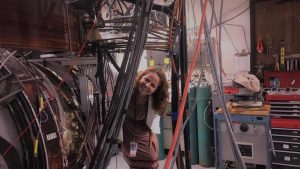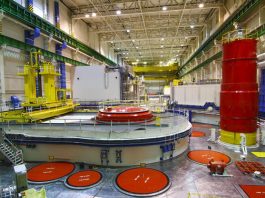The US Department of Energy has invested $5m in a groundbreaking project to accelerate fusion energy research.
By collaborating with several universities, the project aims to create a data sharing platform to streamline fusion energy research.
Fusion is the process of combining two light atomic nuclei to form a single heavier one while releasing massive amounts of energy.
The Findable, Interoperable, Accessible, and Reusable (FAIR) data platform will be compatible with Machine Learning tools to unlock new scientific insights and drive workforce development and diversity.
Groundbreaking developments in fusion energy research
The Sun and all stars are powered through fusion, making it the Universe’s preferred energy production method.
Recent breakthroughs in fusion energy research have led to the US Government’s Bold Vision for Commercial Fusion Energy and the remarkable growth of the global fusion industry.
The platform’s databases will be built using MDSplusML, an upgraded version of the MDSplus open-source software developed by MIT’s Plasma Science and Fusion Center researchers.
Today, nearly 40 fusion research institutes use MDSplus to store and provide external access to their fusion data.
The release of MDSplusML will enable the free exchange of data and models across institutions, therefore speeding up progress in fusion energy research.

Dr Evdokiya Kostadinova, an Assistant Professor at Auburn University, one of the universities leading the project, explained: “Fusion energy research has made remarkable progress, which is evident from multiple exciting results from experiments worldwide.
“However, true breakthroughs rely on strong collaborations committed to open science and diverse viewpoints.
She added: “This project will enable such collaborations and will allow us to use Machine Learning to uncover fundamental science hidden in big datasets.”
Encouraging diversity and development in the next generation of fusion scientists
As well as being a cross-institutional collaboration between universities and industry partners, the project also strongly focuses on workforce development.
Four out of five PIs are women scientists, so the team hopes to inspire and encourage diversity in the next generation of fusion energy scientists.
To make this a reality, each year of the project, the College of William and Mary will host a summer school where undergraduate students will learn how to employ Machine Learning techniques in fusion energy research.
Dr Cristina Rea, the project’s lead, said: “Having the opportunity to lead such an important project is extremely meaningful, and I feel a responsibility to show that women are leaders in STEM.
“We have an incredible team, strongly motivated to improve our fusion ecosystem and to contribute to making fusion energy a reality.”









